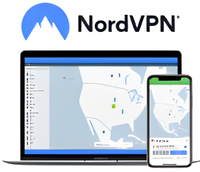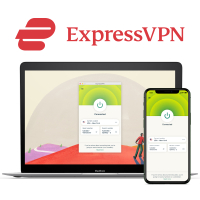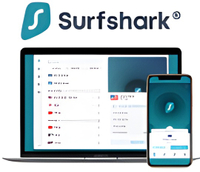Should you use XNXubd VPN?
Is this popular new "VPN Browser" the real deal?
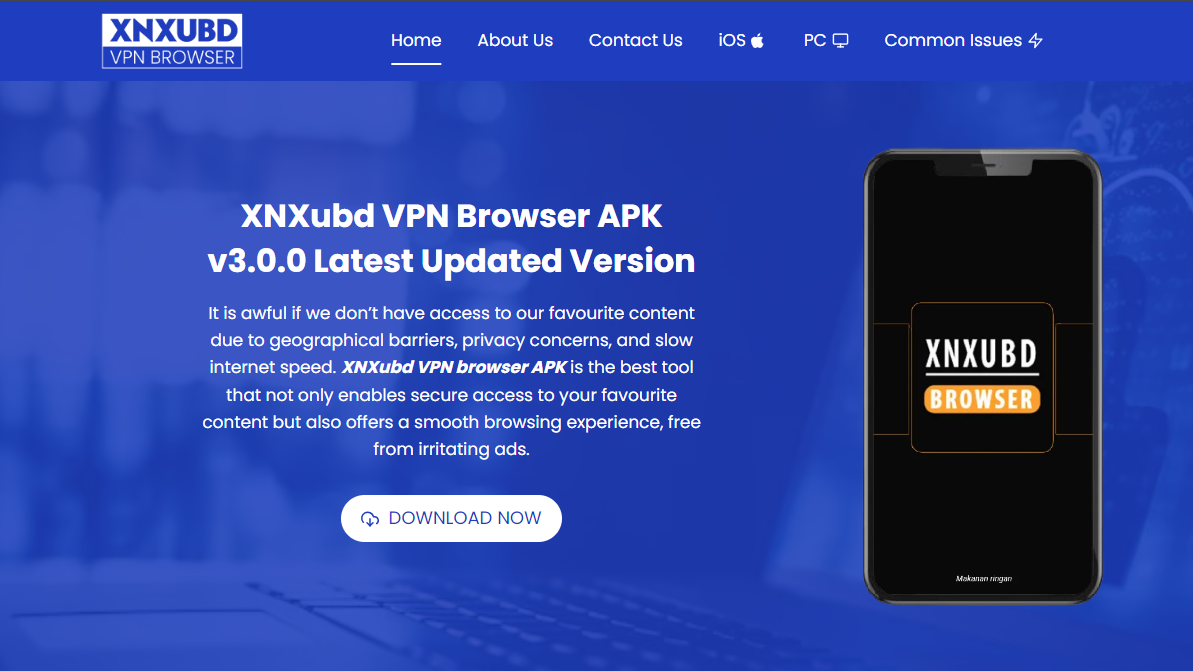
When I first came across XNXubd, I was immediately intrigued—the product name is pretty obscure, after all, and a long list of odd Google search results only adds to the mystery. The product website claims that XNXubd is a "VPN Browser" so, as you'd expect, I just had to check it out for myself.
Is it a mobile VPN app? A web browser with a built-in VPN? More importantly, can XNXubd be trusted to keep your browsing sessions safe by encrypting your personal data? This is the standard that the TechRadar team holds the best VPNs to, after all, and there's no middle ground when it comes to your digital privacy.
So, with that in mind, let's take a look at XNXubd and get to the bottom of whether it's a reliable VPN—or a risk that you're better off not taking.
What is XNXubd VPN?
I put the XNXubd website under the microscope in my search for answers, and found that it defines itself as:
"an app that combines the power of a VPN (Virtual Private Network) and a web browser to offer a safer and more private browsing experience."
Web browsers with built-in VPNs aren't totally unheard of. The likes of Opera offer a solid VPN-browser combo, for example, but these services are typically proxies and not full-fledged VPNs. As a result, you're not getting the same level of overall security as you would if you were using a secure VPN that employs top-notch encryption methods.
In terms of compatibility, there's a little confusion—and that's because there are two XBXUBD websites. The newer website suggests that the VPN is available for Android, iOS, and desktop computers, but the older website only lists Android and iOS as available options.
Are you a pro? Subscribe to our newsletter
Sign up to the TechRadar Pro newsletter to get all the top news, opinion, features and guidance your business needs to succeed!
Does that mean that XNXubd is positioning itself as primarily a mobile VPN? It certainly seems that way. All of the product screenshots, setup steps, and even a video tutorial are centered around a mobile experience. There's a distinct lack of information about the service, what it is, what it does, and how, however—and the deeper I dug, the worse it got.
What are the issues with XNXubd VPN?
Okay, so is XNXubd the real deal? A legitimate VPN? Here are the biggest red flags I uncovered during my investigation:
Which website
Searching for "XNXubd" points you to a typical VPN landing page—but there's a hitch. As I mentioned earlier, two, XNXubd websites exist. One of them is older, with a copyright in 2023, and one appears more recent, with a somewhat improved layout and more of the marketing materials you'd expect from a VPN landing page. Think video tutorials, screenshots, product spec tables, etc.
If you're wondering which one is real, I'd suggest, instead, wondering if it matters. I wouldn't trust either website.
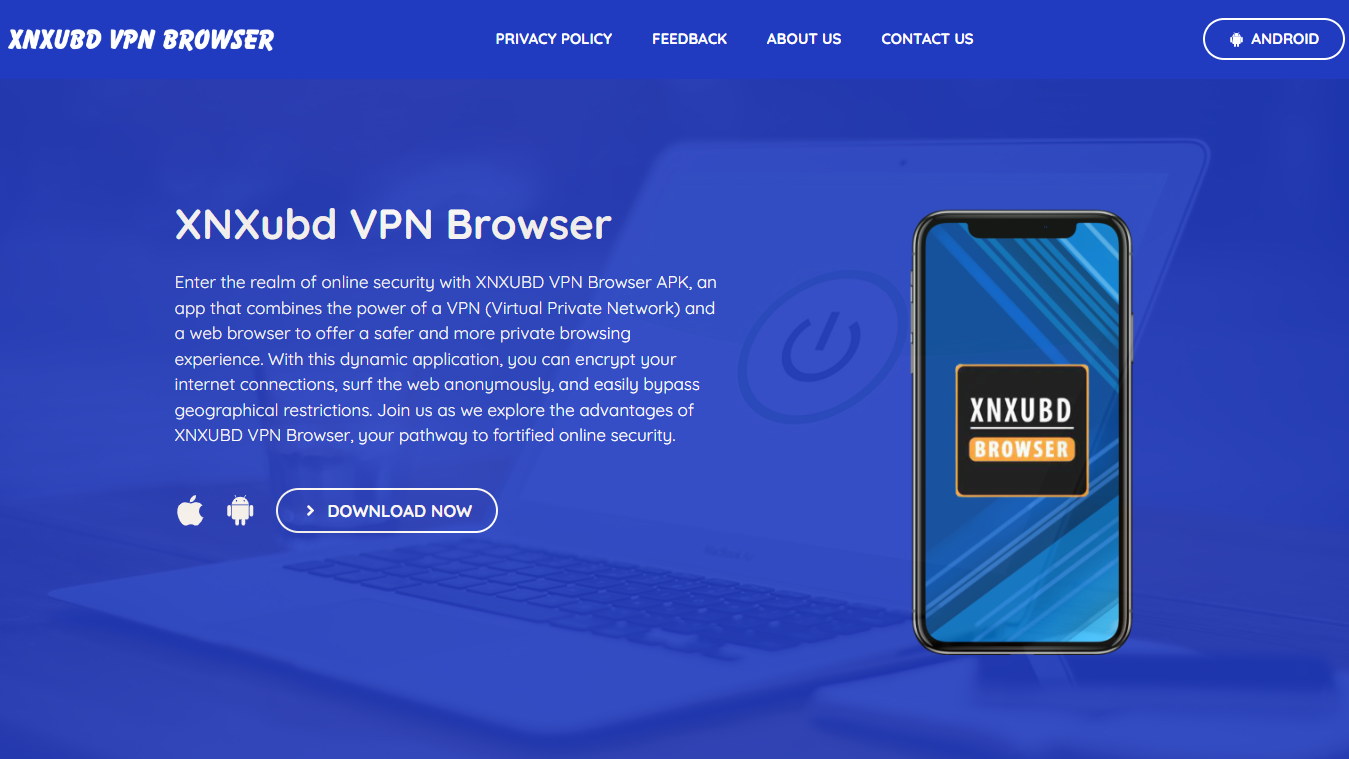
(No) attention to detail
Take a look at any other VPN website and you'll see a well-manicured page jam-packed with information, feature lists, and more. These VPNs want you to be dazzled by the buffet of functionality (and make a purchase), sure but it's also important for a service to be upfront and transparent about what the product does and how.
Savvy shoppers will want to know which protocols a VPN offers, the strength of its encryption, how many servers it has, where they are, and whether they're virtual or not. All of this basic information is missing from the XNXUDB website, and there's no mention of advanced tools like a kill switch, port forwarding, and obfuscation tech (that hides the fact that you're using a VPN at all).
Not having this data readily available is a surefire way to deter prospective users. If someone wants a streaming VPN, for example, they'll want to know if the service is quick and has servers in the locations where the content they want to unblock is accessible. Similarly, privacy purists might want to check whether a VPN offers WireGuard or OpenVPN protocols.
XNXubd keeps us all in the dark. Both websites have pretty shallow, boilerplate copy promising security… without actually explaining how they service provides it.
Take this quote for example:
"It encrypts your data and personal information for internet traffic by ensuring it is unavailable to third-party entities."
That's great on paper, but how does XNXubd encrypt user data? Does it employ AES-256 encryption? Does it have SSL certificates? Without clear answers to these questions, I wouldn't recommend putting your privacy in the hands of this product (or really even considering it).
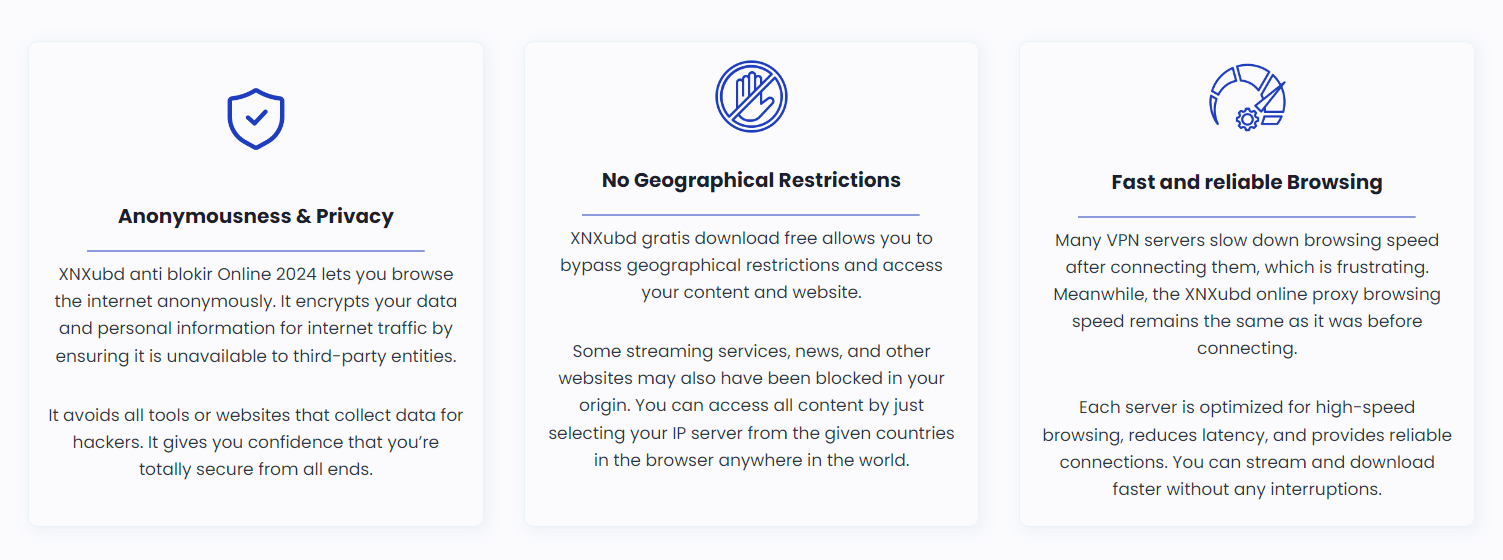
A problematic privacy policy
I opened both privacy policies (one on each XNXubd website) and noted that each version concerns, for the most part, the website itself and not the VPN service. That means that there's no real way of knowing how the VPN itself will handle your data before you download it. Check out the privacy policy of any major VPN and you'll see a stark difference—and you'll see that their policies cover and differentiate between their website and product.
The XNXubd privacy policies are… odd. I had to read through them a few times to make sure I had the full picture.
It was the newer policy that worried me the most, however, thanks to this little nugget in the "What Information We Collect" clause:
"We automatically collect data about your device and how you interact with our service, such as your IP address, browser type, and the pages you visit."
This is some of the most personal and identifiable information that you, the person using an internet-enabled device, have to offer, and the fact that XNXubd collects it flies in the face of what a real VPN should be doing. The company claims that it has a few reasons to gobble up this data, including to "provide" the service and analyze usage trends, but it's a big blow to your right to digital privacy.
If you're using a VPN to boost your online security and keep your real IP address, the websites you visit, and your download history concealed from nosy onlookers, then what's the point of using a VPN that's going to keep tabs on you for its own eerily non-specific ends?
XNXubd also claims to abide by a no-logs policy, which got a good scoff out of me, seeing as its privacy policy actively proves otherwise.
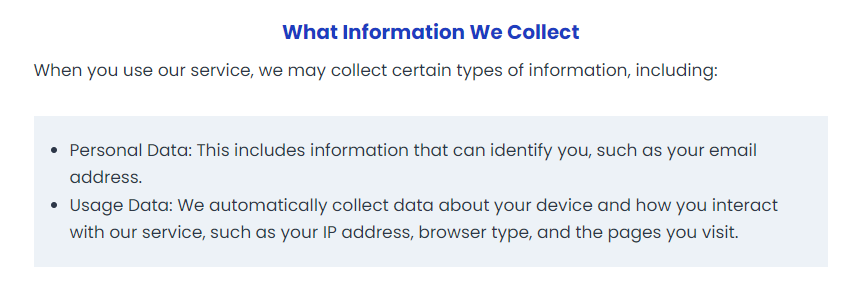
Third-party snooping
Both XNXubd privacy policies state that the website servers its lucky users with third-party ads—and that the technology used to display them, and the companies who provide them, have access to some of your identifiable information.
The older policy says:
"[Third-party ad servers] automatically receive your IP address," which is a privacy nightmare in and of itself. Your digital footprint, and your online habits, are commodified and up for sale before you even download the VPN. That's not the sign of a privacy-minded provider.
The newer policy takes a more shrouded stance, stating:
"We may share your personal information in certain situations, such as with service providers."
I'm also less than impressed by the advice that XNXubd doles out to its security-focused readers. The website says that if you want to opt out of cookies or other third-party services, it's up to you to go to that external website and configure your preferences yourself. It's a pretty blasé attitude to take for a, supposed, privacy-enhancing VPN, right?
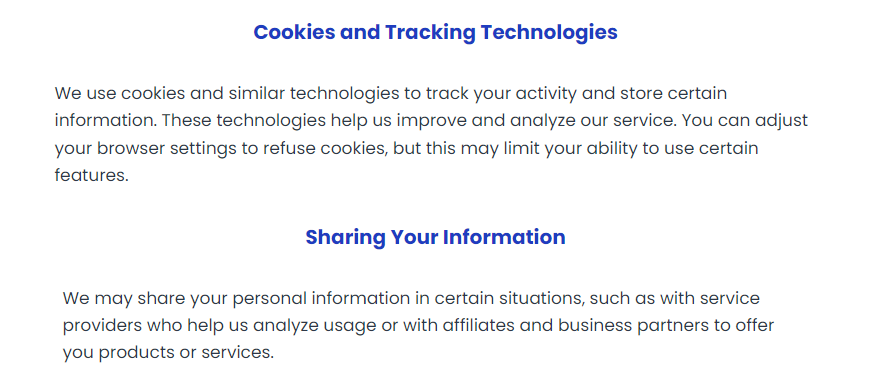
Who owns what?
Finally, it's worth pointing out the rather odd "About Us" page on the older version of the XNXubd website. It calls the service a "blog" and states that it does not "own or modify any app—which begs the question, who does?
The newer XNXubd website is a little more comprehensive, and does make reference to the product being a VPN… which is an improvement, I suppose? The text also refers to the VPN service as "ours", which could be a subtle indication of ownership.
Alternatives to XNXubd VPN
I don't recommend that you use XNXubd VPN. I don't trust the website or the product, and I'd recommend giving them both a wide berth.
The good news is that there's a world of reliable alternatives that do work, that do have legitimate websites (with technical specs), and that do care about your privacy. Try the best VPNs on the market and take advantage of their money-back guarantees to get three free months of protection.
1. NordVPN: the best VPN overall
NordVPN is my favorite all-rounder, capable of unblocking tons of streaming services while keeping your personal information under lock and key. Apps are available for all of your devices, too, and seeing as NordVPN is the fastest VPN I've ever tested, you won't have to worry about buffering interrupting your movie marathon.
Try NordVPN for yourself without risking a penny with a 30-day money-back guarantee.
2. ExpressVPN: the best for beginners
ExpressVPN is the service I recommend to VPN newcomers, because it's just that easy to use—no experience necessary. The one-click connect will pair you up with a server instantly, and the service even handles all of the complicated configuration for you during setup. Plus, the ExpressVPN apps look awesome, whether you're using them on your phone or desktop.
Take ExpressVPN for a test drive with a 30-day money-back guarantee.
3. Surfshark: the best cheap VPN
Surfshark packs a whole lot of functionality into prices that are nice and budget-friendly. It's my favorite cheap VPN, and gives you extra value for money with unlimited simultaneous connections, so you can use one subscription to cover as many gadgets as you want.
Surfshark also excels at unblocking streaming services from around the world—and you can try it for yourself with a 30-day money-back guarantee.
Disclaimer
We test and review VPN services in the context of legal recreational uses. For example:
1. Accessing a service from another country (subject to the terms and conditions of that service).
2. Protecting your online security and strengthening your online privacy when abroad.
We do not support or condone the illegal or malicious use of VPN services. Consuming pirated content that is paid-for is neither endorsed nor approved by Future Publishing.

River is a Tech Software Editor and VPN expert, helping take care of cybersecurity content on TechRadar, ranging from reviews, buying guides, and must-have VPN deals. River's expertise in the cybersecurity field opened their eyes to the startling amount of online snooping we accept into our daily lives. Now, River is committed to fighting for your right to digital privacy by shining a light on its biggest threats – and helping readers safeguard their data with the help of a VPN. Surfshark is River's favorite VPN, and they use it every day to keep their most sensitive details out of the hands of third-party trackers.
